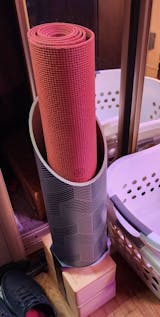In the realm of medicine, the concept of health is evolving. No longer confined to merely treating symptoms, modern healthcare is increasingly turning towards preventive approaches, striving to identify and mitigate underlying causes of illness. In the pursuit health, the role of environmental toxins cannot be overstated.
From mold lurking in the walls to pesticides lingering on our produce, these unseen assailants pose significant threats to our well-being. Understanding their impact and implementing measures for screening and intervention is paramount in safeguarding our health.
Silent Intruders: Environmental Toxins
Environmental toxins encompass a broad spectrum of substances that pervade our surroundings, often unbeknownst to us. Mold, contaminated water, plastics, VOCs (volatile organic compounds), carpeting, and pesticides are among the most prevalent culprits. While their sources vary, their effects on health can be profound and far-reaching.

Toxin Screening + Prevention
The insidious nature of environmental toxins lies in their ability to accumulate over time, gradually exerting adverse effects on our health. Screening for these toxins serves as a crucial first step in identifying potential sources of exposure and assessing individual risk levels. By pinpointing specific contaminants, healthcare practitioners can tailor interventions to mitigate their impact effectively. In my practice, every patient is screened for potential toxin exposure in their intake paperwork.
Common Symptoms of Toxin Exposure
Recognizing the signs and symptoms of toxin exposure is pivotal in early detection and intervention. Fatigue, brain fog, insomnia, fibromyalgia, anxiety, and chemical sensitivity are among the hallmark indicators of toxin overload. These manifestations often present themselves subtly, masquerading as routine ailments until their cumulative burden becomes undeniable.

Detox Your Home from Hidden Toxins
While the prospect of environmental toxin exposure may seem daunting, there exist many, life-affirming interventions to mitigate risk and promote detoxification. Explore one of more of the following tips to root out toxins hiding in your home:
- Environmental Assessment: Conducting a comprehensive assessment of living and workspaces can unveil hidden sources of toxins. From mold inspections to water quality analyses, proactive identification of contaminants is essential.

- Dietary Modifications: Adopting a diet rich in antioxidants, fiber, and phytonutrients can bolster the body's natural detoxification mechanisms. Emphasizing organic, whole foods while minimizing processed and pesticide-laden options is key.

- Air Filtration: Investing in high-quality air filtration systems can significantly reduce indoor air pollutants, including VOCs and mold spores. Additionally, adequate ventilation and humidity control are paramount in preventing mold proliferation.

- Non-Toxic Cleaning Products: Transitioning to eco-friendly cleaning products eliminates exposure to harmful chemicals present in conventional cleaners. Simple substitutions, such as vinegar and baking soda, can effectively sanitize surfaces without compromising health.

- Mind-Body Practices: Incorporating stress-reducing techniques, such as meditation, yoga, and deep breathing exercises, enhances the body's resilience to environmental stressors. Moreover, adequate sleep and regular physical activity are foundational pillars of detoxification and overall well-being.

- Personal Care Products: Opting for natural, toxin-free personal care products mitigates exposure to endocrine-disrupting chemicals found in conventional cosmetics and skincare items. Reading labels and selecting products free of parabens, phthalates, and synthetic fragrances is prudent.

In the pursuit of optimal health, screening for environmental toxins at home emerges as a pivotal strategy in identifying and mitigating potential threats to well-being. By recognizing the signs of toxin exposure and implementing targeted interventions, individuals can reclaim control over their health and cultivate home and work environments conducive to vitality and longevity.
As we navigate an increasingly complex landscape of environmental hazards, empowerment through knowledge and proactive measures remains our most potent defense. Let us embark on this journey towards health and resilience, mindful of the unseen adversaries that shape our collective well-being.
Our guest contributor Ashley Shrader, DNP, IFMCP, RYT is a yoga teacher and functional medicine-trained registered nurse with a passion for working with endurance athletes to regulate hormones and promote optimal wellbeing by focusing on gut health and environmental detoxing. Learn more about Ashley's approach to healing chronic illness by first cleaning out environmental toxins.




















